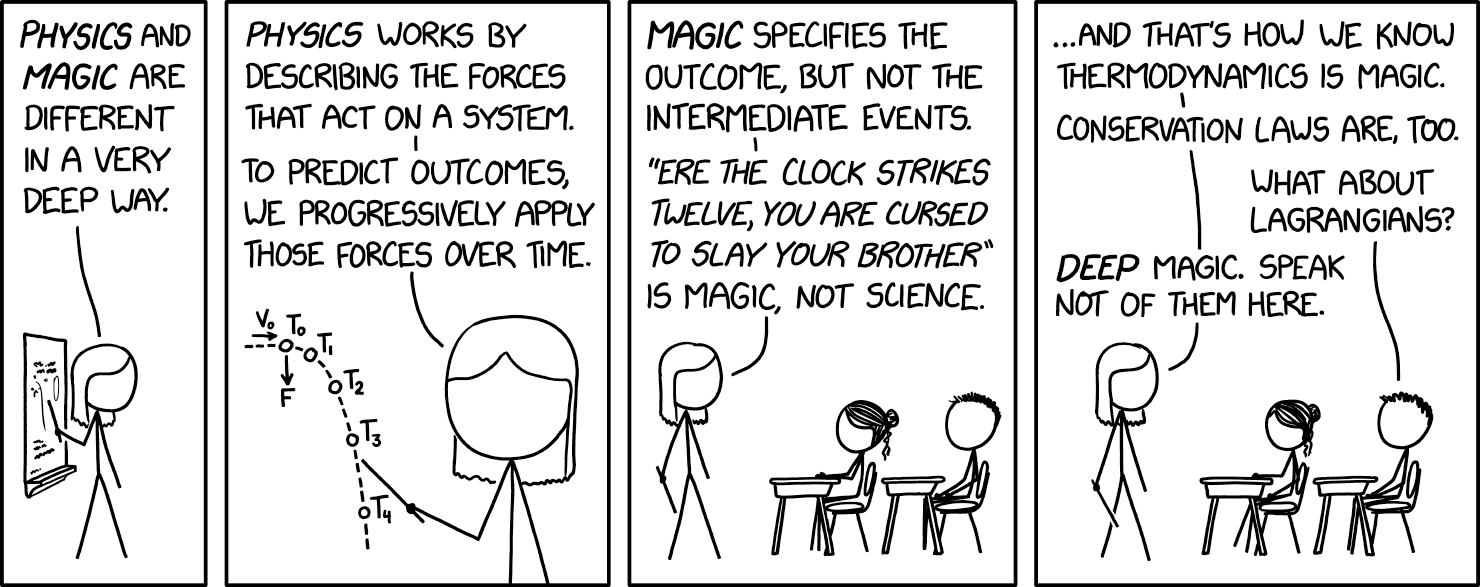this post was submitted on 09 Mar 2024
562 points (98.8% liked)
xkcd
8781 readers
83 users here now
A community for a webcomic of romance, sarcasm, math, and language.
founded 1 year ago
MODERATORS
you are viewing a single comment's thread
view the rest of the comments
view the rest of the comments

I have some sort of learning disability when it comes to math. I barely passed math classes in high school. I had one required math class in college, took the "anyone can pass this class" one and still got a C.
So basically, once math is involved, it's all magic to me.
Hooray ~~magic~~ science!
You might have dyscalculia. It's best described as 'math dyslexia' and heavily impacts a person's ability to do math
It could be, but I don't mix up numbers, I just can't grasp concepts. Equations mystify me.
I wonder if I have this. Edit: no I don't think I do.
One of the symptoms of ADHD, as I understand it, is difficulties with symbol decoding (I think that is what it is called). I think it may be related to poor working memory. Say you want to decode a substitution cypher. With ADHD you have to keep referring back to the decoding chart more often than those without. (I took a test on this as part of my diagnosis and I sucked at it).
I think maybe that affects understanding equations with all the symbols and Greek letters and such?
That may be my problem. My daughter was diagnosed with ADHD and although I've never gotten an official diagnosis, her symptoms are pretty similar to my experiences, so it's entirely possible I have ADHD and this is an ADHD thing.
ADHD is very heritable, almost as much as height. So it is pretty likely, indeed.
PS: I can grasp math concepts if explained in certain ways. I had to take a below grade level math class in middle school and needed a tutor for algebra. I blame the teachers lol. I somehow managed to get through all the math in my engineering degree (wtf was I thinking?).
Later on in life I struggled to understand Kalman filters until an online course explained it in a really accessible way, and related it to another class that was well taught on Bayesian statistics. It all clicked. But if I stare at typical math textbooks, it might as well be written in hieroglyphics. It just doesn't sink in.
I felt the same way until I had to take a statistics class for a second bachelors I'm working on as a middle aged person. The class was "statistics for non STEM majors" and the extremely chill, aging surfer dude prof approached it like we were all easily spooked horses and math was a snake.
He didn't even tell us when we took our midterm, he told us it was a quiz that he was offering lots of extra tutoring sessions for. He didn't tell us until weeks later when someone asked when the midterm would be. He really went out of his way to explain down to the roots of each equation about how and why it works.
By the end of it I didn't feel like I was missing the part of my brain that can do math anymore.
A lot of math involves just moving things around until the problem is easier. It's just a bunch of tricks that work for relatively simple reasons. But you just memorize them to make it easier.
Statistics is more like magic than other kinds of math. Like when you have more than 30 random unbiased selections from a population you can start guessing at the composition of the whole, no matter how large it is. The explanations require someone who really knows what's going on.
Then you have modern LLMs that use statistics to produce the next word in a sentence. They can be so complex the designers don't really know why they do what they do. It's just trial and error testing the outcomes.
Biology bs required 5 units of physics, physics was 3+1 for the lab. I haaaaate physics, love my chemistry, I'm pretty bad at higher math, physics just tries to be as tricky as possible while hiding behind the shroud of "this is how it works in life". They made a "physics for biologists"class which was as much practical application of physics as they could put into a 1 unit 1 night per week course. I learned more, better, talking point physics in that class than any other.
Finals week was an optional "sasquatch" lecture that was open to anyone we wanted to bring, it was attended by more people than were actually in the class.
We learned how drag coefficients worked, how a great white child swim from California to Japan in 1 bite of food, how a blue whale and a bacteria both use the same amount of energy to move a distance. How terminal velocity means you can't drop a mouse to it's death. The optics of eyes.. greatest physics course ever.
There is a real good argument to be made that math is a language.
So you didn't fail math you are just illiterate. Not really sure if that is better though...
I'm terrible with human languages too. I barely made it through French.
And computer languages. I've tried learning C and Python and Java multiple times and it just baffles me.
So yeah, apparently the language center of my brain is entirely devoted to English.
I really love science and I do try my best to understand it, but I realize I can only ever do so at a superficial level.